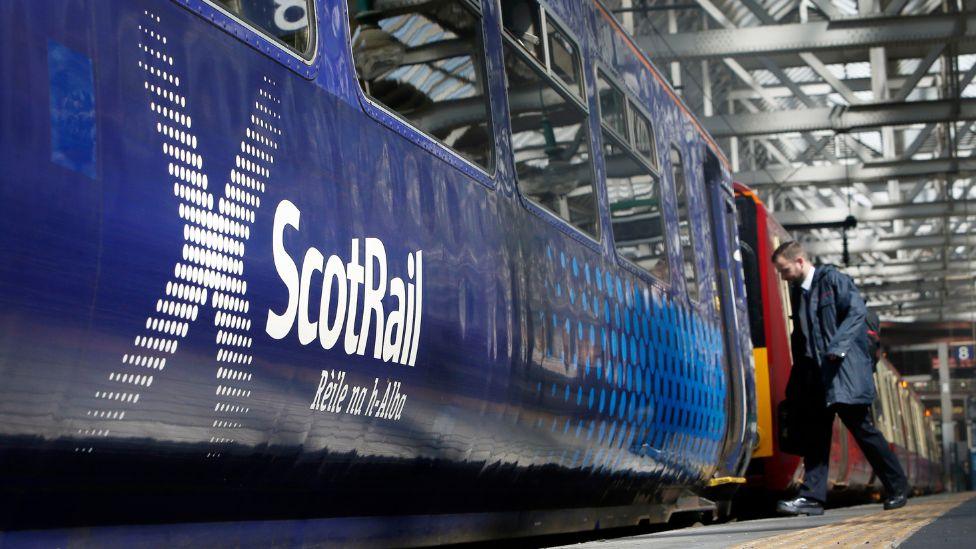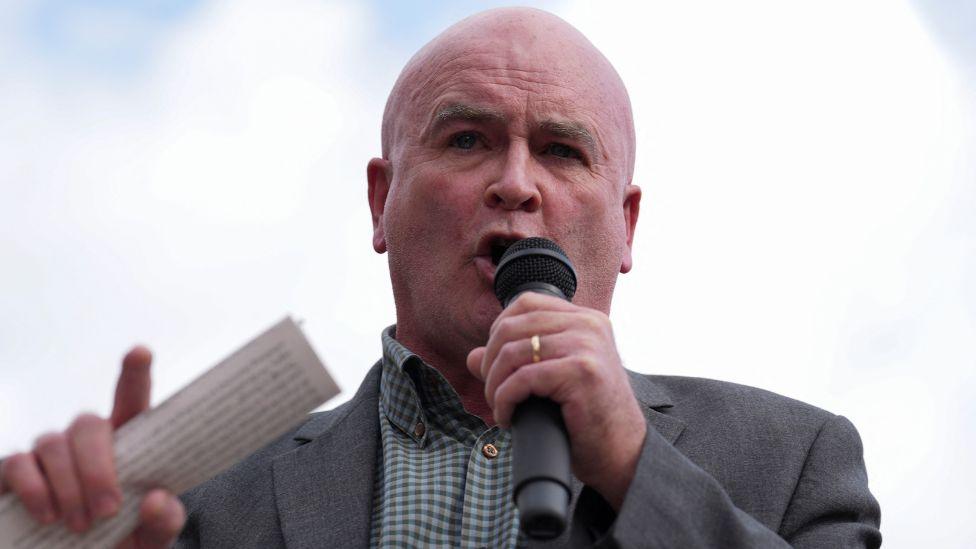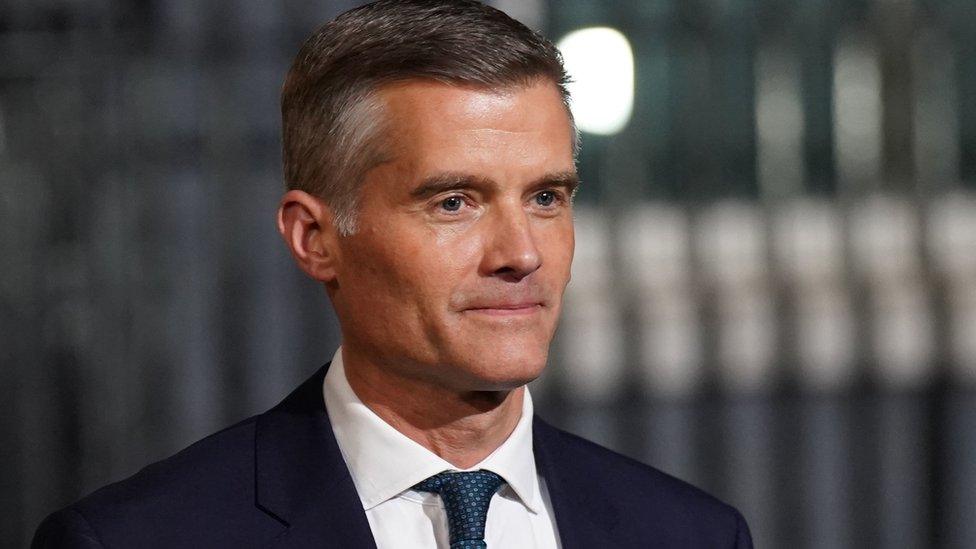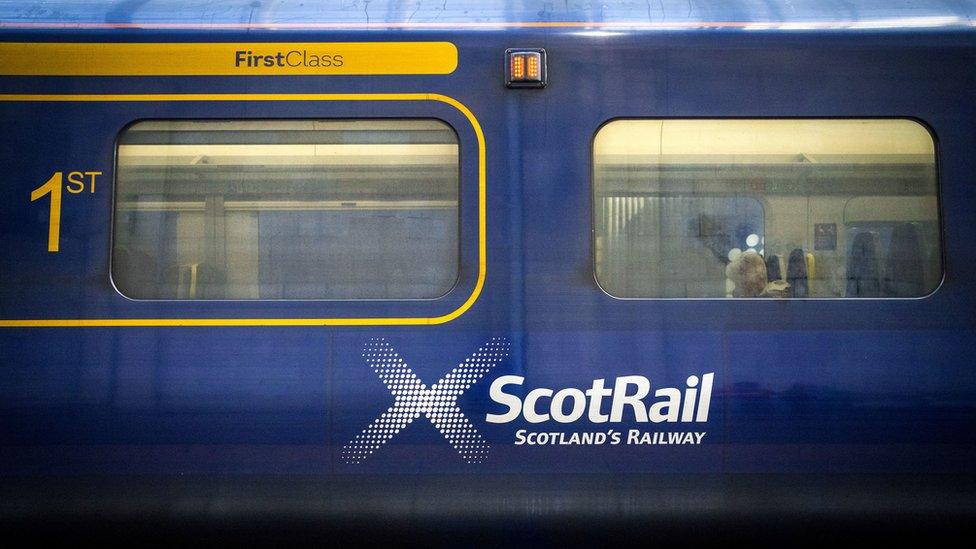Is there an end in sight to rail strike disruption?
- Published

Rail services in Scotland have faced disruption over the last six months
The travelling public in Scotland have faced regular disruption to their rail services over the last six months.
Despite a calling off of recent strikes, just 11 routes were open on Saturday while Monday's timetable was "very limited".
The disruption started back in May when ScotRail drivers declined to work overtime or on rest days.
This led to the introduction of a temporary timetable which cut daily services by a third.
That pay dispute was resolved in July - but two other entirely separate disputes are continuing.
Both involve the RMT union and have some common themes, not least the cost of living crisis - but they are otherwise unconnected.
Who is involved in the disputes?
The first dispute is at Network Rail - the company owned by the UK government which is responsible for the signals and tracks across Britain.
There have been regular strikes at Network Rail since June. When this happens most railway lines are closed so ScotRail and other train companies can only run a restricted number of services.
Action was due to take place there on Saturday, Monday and Wednesday of this week, but the strike was called off on Friday afternoon.
The union says there will now be an intensive period of negotiations with Network Rail.
Because the action was called off at a relatively late stage, services still faced significant disruption on Saturday and Monday.
That was because ScotRail and many train companies based south of the border said there was too little time to reorganise rosters.
ScotRail intends to run its normal timetable on 8 and 9 November.

RMT general secretary Mick Lynch has led negotiations with Network Rail
However, the dispute between ScotRail itself and the RMT is threatening to intensify.
The RMT intends to hold a strike at ScotRail on 19 November, then on every Friday and Saturday in the run-up to Christmas.
These strikes could have a huge impact on the wider economy, affecting Christmas shopping trips and nights out.
Talks are due to take place this Wednesday in a further effort to resolve the dispute.
RMT members at ScotRail have been offered a pay rise of 5% with an extra £500 on top.
The union notes that this is still significantly below the rate of inflation.
Is there an end in sight?
There is a degree of controversy over whether the UK and Scottish governments can get directly involved in resolving the two disputes.
The Scottish government insists it cannot get directly involved in pay talks - but the union says it can help solve the dispute.
ScotRail was in effect renationalised by the Scottish government in April after 25 years in the private sector.
Network Rail, which is publicly owned, emerged from the ashes of the privatised company Railtrack 20 years ago.
Speaking before the latest strikes were called off, the new UK Transport Secretary Mark Harper said he would be happy to meet the union.

Mark Harper was appointed transport secretary by Rishi Sunak
Meanwhile trade union law makes striking much harder than was once the case.
There needs to be a fresh strike ballot every six months and 14 days' notice of action is needed. The turnout in the ballot needs to be above 50%.
Before services in Scotland can get back to normal, both disputes will need to be resolved. If one ended but the other continued, there would still be disruption.
And the rail network is still returning to normal after the pandemic.
Overall passenger numbers are down on pre-Covid levels and some services still operate less frequently.
Until both disputes are resolved, it will be hard to make a consistent effort to persuade more people to start travelling by train again.
Related topics
- Published7 November 2022
